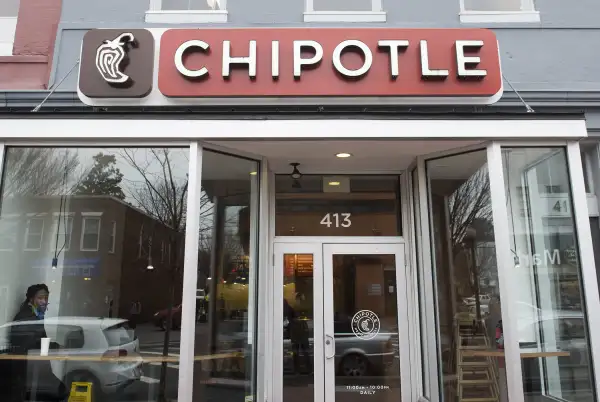Chipotle Scandal Could Ruin Locally-Sourced Food for Restaurant Chains

Large farming operations enjoyed significant economies of scale over small, local farmers for decades. When a national supermarket or restaurant chain was in need of massive quantities of, say lettuce or onions, the company had no choice but to turn to huge farms rather than local mom-and-pop operators.
But recently, unlikely as it may have seemed in a culinary landscape dominated by golden arches and an industrial meat machine, American stomachs have found a huge hunger for ethical and "healthier" options. Trendy diets, environmental causes, globalization, and a heightened focus on health have increased scrutiny placed on where food comes from, and locally-grown fare has become all the rage. When a farmer with a face is up against a corporate food machine, it's clear who wins the PR battle from the consumer point of view.
Enter newer "fast-casual" restaurant chains like Chipotle. Price-wise only slightly higher than a combo meal or a foot-long sub, Chipotle's relative unfamiliarity compared to the ancient chains have allowed it to cultivate a different sort of higher-quality, tastier, less-greasy reputation, despite comparable levels of nutrition between a Big Mac and a Chipotle burrito.
Chipotle's ambitious "Food with integrity" marketing campaigns that boasted of "Responsibly Raised™" meats. The company is known for committing to organic ingredients, and—to the chagrin of some—taking a proud anti-GMO stance. And, Chipotle has placed an emphasis on trying to buy local ingredients.
The whole "locavore" movement picked up significant steam about a decade ago, and Chipotle and its astute marketing team has embraced it, regularly increasing and trumpeting its commitment to locally-grown produce. Lately, up to 10% of Chipotle's ingredients are local, according to the Wall Street Journal.
But that party might be over.
Sourcing ingredients from many different small local sources is a compliance nightmare, as far as food safety is concerned, due to some serious diseconomies of scale. "Instead of dealing with one firm, dealing with a hundred firms does increase risk," John Gray, an associate professor of operations at The Ohio State University's Fisher College of Business, told CNBC. There's also varying food-safety and farming standards around the country, and farming practices like fertilizing with fresh manure present significant issues.
As CNBC's restaurant expert Joe Bastianich notes, using actual ingredients from actual farms is also a double-edged sword, "because it comes from the earth—the dirt. It's not grown in some lab, in some vaporless environment. It's real stuff. And that is both a positive and a negative."
On the negative side, gathering ingredients from multiple local farms means that there are more chances for contamination. Chipotle has announced it will scale back local foods immediately in the wake of the E. coli and norovirus outbreaks that have affected restaurants around the country, and that have caused the company's stock to tank, dropping over 40% since its late-summer high-water mark. Because one of the biggest selling points for Chipotle was its high-quality, healthy ingredients, the scandals have caused enormous damage to its reputation.
The tragic arc of Chipotle's relationship with local produce has implications throughout the industry, potentially becoming a warning to others like a a wooden cross on a winding road. In the wake of Chipotle's failure to integrate local ingredients without incident, it's far less likely other chains would tempt fate by relentlessly push the local angle.
But plenty of people attempted Everest after Mallory failed, and some chain will try and succeed eventually. Incorporating local ingredients in large-scale operations is still possible and desirable; it's good for the environment, the economy, and more, according to the FDA.
It just might not happen right away, before food safety standards and issues get sorted out across municipal, county, and state lines. If you're dead set on eating local and quickly, there are plenty of regional fast food options to choose from—they just might not be available in airport food courts across the country.